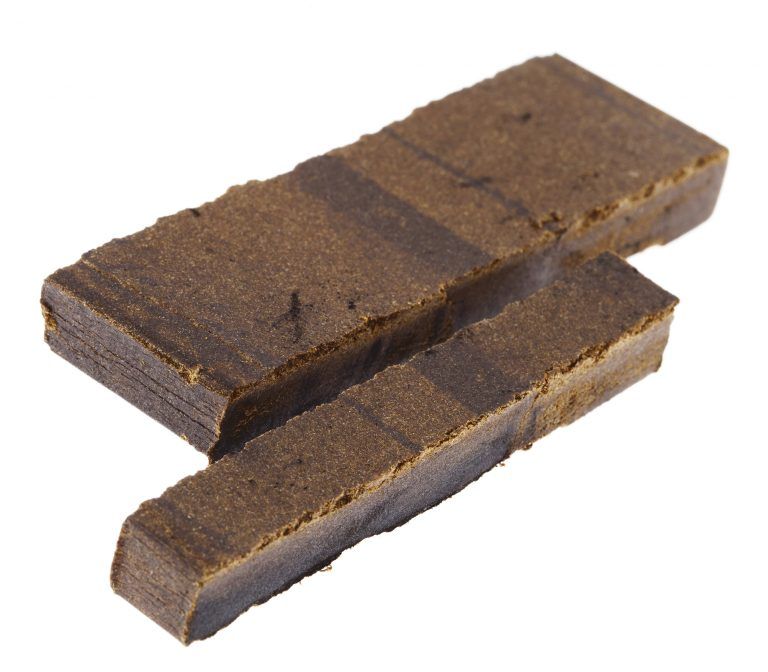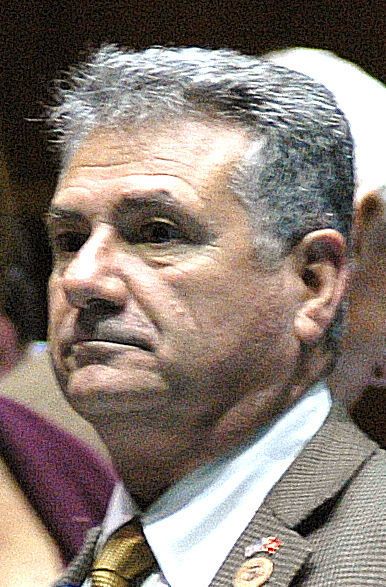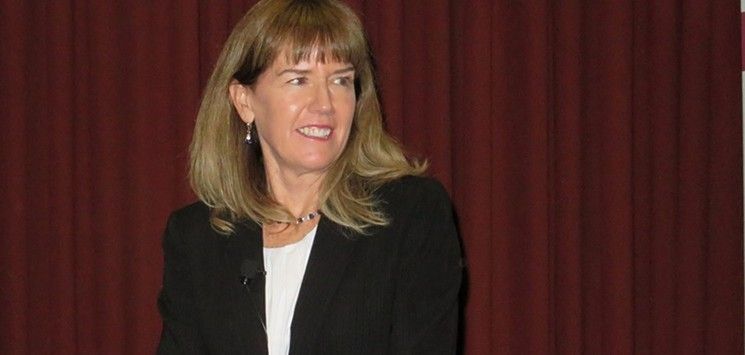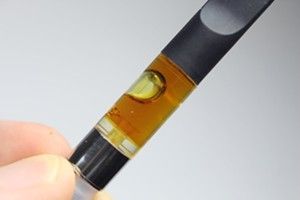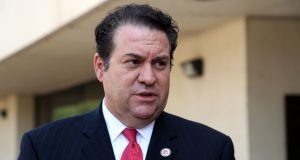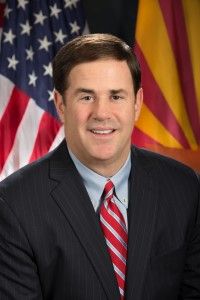"The result was 52 percent for, and 41 against, with 7 percent undecided"
Somebody in AZ should take a copy of that poll and shove it into one of Yavapai County Attorney, Sheila Polks, orifices, IMO
Arizona Voters Favor Marijuana Legalization? Maybe, If It's the Right Plan
A few ideas have been floated for 2020, but no serious stakeholders — a.k.a., people with money or experience winning campaigns — have released any proposed text. However, the high level of voter support for some kind of legalization plan, combined with the potential of lucrative, new business opportunities, mean a proposal is inevitable. The Arizona Dispensary Association, which has taken the lead in discussions for such a plan, may be ready to introduce something as soon as this month.
The survey of 600 likely voters by OH Predictive Insights asked whether "marijuana should be legalized for adult use in the State of Arizona." The result was 52 percent for, and 41 against, with 7 percent undecided.
Yet that was the only question on the subject in the expansive poll, which also covered various 2020 political races.
Voters, whether pro or con on cannabis freedom, will want to know:
• Would legalization include personal, home-cultivation rights? And how many plants would be allowed per household?
• How much marijuana could someone possess before risking potential prosecution? Would edibles and concentrates have different legal thresholds?
• Would a legalization bill call for the erasure of past convictions for marijuana offenses?
And so on.
Perhaps the most crucial question is: What will well-established Arizona medical-marijuana companies allow on the ballot?
Many proponents thought the 2016 legalization effort, Prop 205, wasn't as good as they had hoped, said Mike Noble, OH's chief pollster and managing partner.
"I would say it's critically important what the ballot language says," Noble said. "If they do a much better job [for 2020], that will make a difference."
In the 2016 election, Prop 205 failed 51.3 percent to 48.7. The reasons are still being debated. That election year was considered groundbreaking for legal weed, with voters saying "yes" to adult use in Maine, Massachusetts, Nevada, and the all-important state of California. Arizona, where voters preferred Trump for president, was the outlier.
Political observers and pot advocates will recall that Prop 205 formed from chaos. Key stakeholders including the Marijuana Policy Project, which put Arizona's successful 2010 medical-marijuana law on the ballot, and local dispensary owners engaged in a dispute over the number of retail licenses that would be available, and whether personal cultivation would be included. In 2015, Rob Kampia, co-founder of the MPP, wrote an angry letter to Gina Berman, a dispensary owner who split from talks over the legalization bill, threatening to pay people to disrupt her business.
Out of the dust came the Campaign to Regulate Marijuana Like Alcohol in Arizona, led by dispensary owner J.P. Holyoak, and its proposal, Prop 205. The measure largely limited new retail licenses to existing medical-marijuana businesses. Local PR player and former reporter Barrett Marson, who usually represents conservative causes, was one of Prop 205's spokesmen.
Surprisingly, for some, Prop 205 had other features that were rejected by many grassroots legalization advocates and groups including Safer Arizona and Arizonans for Mindful Regulation (AZFMR).
The measure would have given adults 21 and older the freedom to possess up to an ounce of marijuana flower and up to five grams of concentrates, and to grow up to six live plants, with a maximum of 12 per household. Hardcore cannabis activists said Prop 205 didn't go nearly far enough. They launched their own measure, which didn't make the ballot, and they openly — often viciously — attacked Prop 205 and anyone perceived to be supporting it.
Jim Hesterman/Courtesy of Mikel Weisser
“I’m very confident I can destroy the MPP’s initiative,” bragged Jason Medar, then the leader of AZFMR.
Will the situation in 2020 be different? Mikel Weisser, executive director of the Arizona chapter of the National Organization for the Reform of Marijuana Laws, (
NORML), is "nervous."
"I'm not wanting to go down the path of anything like 2016 again," he said.
Weisser has heard rumors that a "working draft" of an ADA ballot proposal exists, but he hasn't seen it yet, and ADA representatives tell him they're still working on it.
Problems have already risen at the ADA over the issue. Longtime legislative lobbyists Kevin DeMenna and his family resigned as executive director from the ADA in January following disputes over issues related to a ballot initiative.
"The trade group that we helped establish now faces governance and organizational challenges that directly threaten the industry's ability to prepare for the 2020 legalization effort and fight off legislative intervention," wrote the DeMennas in their resignation letter, which they shared with
Phoenix New Times. "The Board, as presently constituted, also presents a significant challenge in launching and running a successful legalization initiative in 2020. While DeMenna Public Affairs chooses not to be involved at this stage, we believe the firms we originally partnered with for the 2020 legalization effort are a solid choice, even without our direct engagement."
Indeed, the latter point may be more than wishful thinking.
Dispensary leaders are preparing some kind of reveal of a plan at the March 20 meeting of the
Marijuana Industry Trade Association, MITA founder Demetri Downing tells
New Times. The details are still under wraps, in part because they're not fully formed, he explained.
"March 20 will be more about the campaign and the strategy and the team and the fundraising and the plan," Downing said in a text on Thursday. "I am sure we will get into some details, but the language is not yet finalized (I am told.)"
Steve White, CEO of
Harvest and president of the ADA, told
New Times last week that a proposal is still being hashed out.
Steve White, Harvest CEO - Courtesy of Harvest of Arizona
"At this point, we are working with general concepts, and starting the dialogue with a variety of stakeholders," White said. "We are also polling different provisions [of a possible measure.]
"Those who have committed funding want to discuss home grows and addressing past crimes, but keeping people out of jail for simple marijuana crimes is a very high priority. On the dispensary issue, this likely going to be driven by polling. ... We need to be deliberate and thoughtful about what is included in the initiative to ensure success. If things happen like the Jones case continue to happen, we will have failed."
White was referring to the ongoing appeal at the Arizona Supreme Court of medical-marijuana patient Rodney Jones, who served prison time after being prosecuted in Yavapai County for possessing a tiny amount of hashish. If the Supreme Court upholds Jones' prosecution — oral arguments in the case are scheduled for March 19 — then patients and businesses would face felony prosecution for possession and sales of hashish and other marijuana resin concentrates, which are among the most popular and medicinally oriented products sold in dispensaries. The sticking point is over wording in the 2010 Medical Marijuana Act.
The opposition will be yet another significant factor in the success or failure of a 2020 measure, and the actual ballot language will matter there, too.
Arizonans for Responsible Drug Policy, led by pot prohibitionist Sheila Polk, the Yavapai County Attorney, waged a shrewd fundraising campaign that took money anywhere it could find it and was
aided by Governor Doug Ducey. They took in about $6 million in donations, including from controversial sources like the alcohol industry and Insys Therapeutics of Chandler, the fentanyl maker whose executives later faced prosecution as corporate drug pushers.
Any 2020 measure will be attacked, and the wording will be used against it. The anti-campaign may focus its propaganda on specific proposals concerning potency, home cultivation rights, limits on driving stoned, or businesses' ability to fire impaired employees. Asked about this, the ARDP, through a spokesperson, said
New Times' analysis is "well taken" and the group had nothing further to add.
Leafly.com didn't offer Arizona much hope in a recent article on predictions for 2019:
"Razing Arizona: Arizona legalization advocates will fight over two separate ballot measures. Neither will make the ballot."
The hundreds of thousands of Arizona cannabis consumers who aren't medical-marijuana patients better hope that's wrong. As Weisser pointed out, at least 29,000 people have been busted in the state for marijuana possession since Prop 205 failed.
